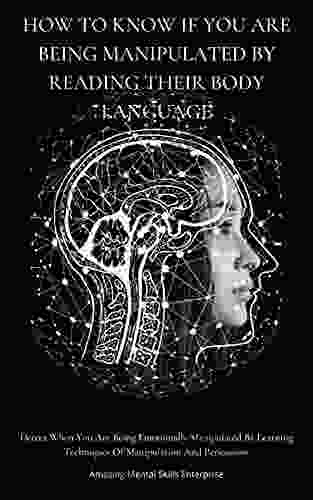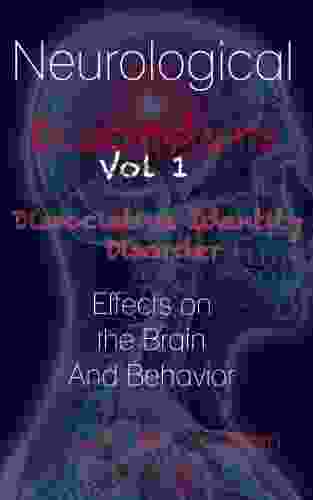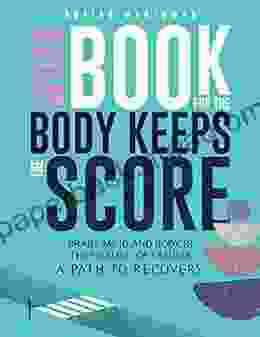Unlocking Recovery: The Brain, Mind, and Body's Path to Healing Trauma

: The Profound Impact of Trauma
Trauma is a life-altering experience that can leave lasting scars on the brain, mind, and body. Its impact can manifest in various ways, from physical ailments to emotional distress and cognitive disturbances. Understanding the complex nature of trauma is crucial for effective recovery.
4.3 out of 5
| Language | : | English |
| File size | : | 892 KB |
| Text-to-Speech | : | Enabled |
| Screen Reader | : | Supported |
| Enhanced typesetting | : | Enabled |
| Word Wise | : | Enabled |
| Print length | : | 111 pages |
| Lending | : | Enabled |
The Brain's Response to Trauma
When confronted with a traumatic event, the brain goes through a series of physiological and chemical changes. The amygdala, the brain's fear center, becomes hyperactive, triggering the release of stress hormones such as cortisol and adrenaline. These hormones prepare the body for a fight, flight, or freeze response.
However, prolonged exposure to these hormones can alter brain structure and function, leading to long-term consequences such as memory impairments, difficulty concentrating, and emotional dysregulation.
The Mind's Struggle to Process Trauma
Trauma also takes a toll on the mind. It can lead to intrusive memories, nightmares, and flashbacks that can be disruptive and distressing. The mind may also engage in negative self-talk, blaming itself for the trauma or feeling worthless.
These cognitive distortions hinder the healing process and can perpetuate feelings of shame and isolation.
The Body's Embodiment of Trauma
Trauma can have a profound impact on the body as well. It can lead to chronic pain, fatigue, digestive issues, and other physical symptoms. These symptoms can be debilitating and further contribute to the burden of trauma.
The Path to Recovery: Integrating Brain, Mind, and Body
While trauma can have devastating effects, it is important to recognize that recovery is possible. By integrating the brain, mind, and body in a holistic approach, individuals can embark on a journey of healing and growth.
Neurobiological Interventions
Neurobiological interventions focus on healing the brain's response to trauma. They include:
* Eye Movement Desensitization and Reprocessing (EMDR): This therapy helps the brain reprocess traumatic memories and reduce their emotional intensity. * Cognitive Behavioral Therapy (CBT): CBT challenges negative thoughts and behaviors that contribute to the impact of trauma. * Mindfulness-Based Therapies: These therapies teach individuals to regulate their emotions and become more aware of their thoughts and feelings.
Mind-Body Therapies
Mind-body therapies connect the mind and body to promote healing. They include:
* Yoga and Tai Chi: These practices promote relaxation, reduce stress, and improve body awareness. * Massage Therapy: Massage can help alleviate physical tension and promote relaxation. * Somatic Experiencing Therapy: This therapy focuses on releasing trauma from the body through gentle bodywork and emotional regulation.
Self-Care and Lifestyle Modifications
Self-care and lifestyle modifications play a vital role in trauma recovery. These include:
* Sleep Hygiene: Establishing regular sleep patterns can promote relaxation and reduce symptoms of anxiety and depression. * Exercise: Physical activity releases endorphins that have mood-boosting effects. * Nutrition: A healthy diet can support brain health and reduce inflammation. * Social Support: Connecting with others who understand the impact of trauma can provide emotional support and encouragement.
: A Transformative Journey
Healing from trauma is a complex and multifaceted process that requires a holistic approach. By integrating interventions that target the brain, mind, and body, individuals can embark on a transformative journey of recovery.
This book provides a comprehensive guide to understanding the science behind trauma and empowering individuals with practical tools for healing. Whether you are a survivor of trauma or a professional seeking to support others, this book will equip you with the knowledge and tools to unlock the path to recovery.
4.3 out of 5
| Language | : | English |
| File size | : | 892 KB |
| Text-to-Speech | : | Enabled |
| Screen Reader | : | Supported |
| Enhanced typesetting | : | Enabled |
| Word Wise | : | Enabled |
| Print length | : | 111 pages |
| Lending | : | Enabled |
Do you want to contribute by writing guest posts on this blog?
Please contact us and send us a resume of previous articles that you have written.
Light bulbAdvertise smarter! Our strategic ad space ensures maximum exposure. Reserve your spot today!
 Vince HayesFollow ·17.3k
Vince HayesFollow ·17.3k Yasushi InoueFollow ·4.2k
Yasushi InoueFollow ·4.2k Avery SimmonsFollow ·6.4k
Avery SimmonsFollow ·6.4k Paul ReedFollow ·18.2k
Paul ReedFollow ·18.2k Ralph TurnerFollow ·6.6k
Ralph TurnerFollow ·6.6k Allan JamesFollow ·5.6k
Allan JamesFollow ·5.6k Keith CoxFollow ·18.6k
Keith CoxFollow ·18.6k Jamie BlairFollow ·4.8k
Jamie BlairFollow ·4.8k

 Isaiah Powell
Isaiah PowellWisconsin Clinic Pilots Mobile Crisis Response System For...
MADISON, Wis. - A new mobile crisis...

 Daniel Knight
Daniel KnightUnleash Your Creativity: A Masterclass in Fabulous Nail...
Embellish Your Fingertips with Captivating...

 Clark Campbell
Clark CampbellDetect When You Are Being Emotionally Manipulated By...
Emotional manipulation is a subtle but...

 Eli Brooks
Eli BrooksNeurological Disorders Papers: Dissociative Identity...
What is Dissociative...

 Ricky Bell
Ricky BellAn Introduction to Islam for Jews: Unveiling the Tapestry...
A Bridge of Understanding: Exploring Islam for...

 Octavio Paz
Octavio PazAchieving Longevity: The Complete Step-by-Step Guide to...
**** In the ever-evolving landscape of health...
4.3 out of 5
| Language | : | English |
| File size | : | 892 KB |
| Text-to-Speech | : | Enabled |
| Screen Reader | : | Supported |
| Enhanced typesetting | : | Enabled |
| Word Wise | : | Enabled |
| Print length | : | 111 pages |
| Lending | : | Enabled |


















































